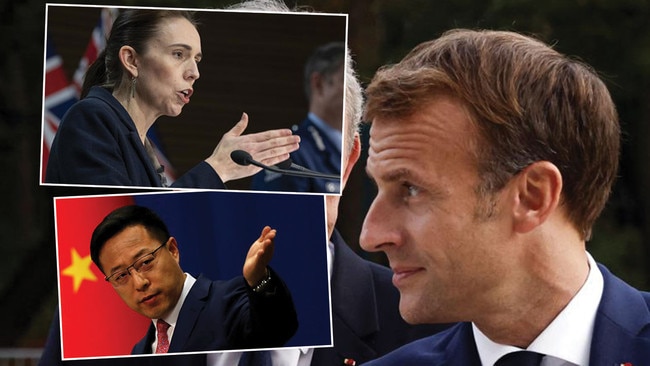
Zhao, incidentally, is that measured and urbane chap who last year tweeted a doctored image of an Australian soldier slitting the throat of an Afghan child. His concerns about AUKUS have been parroted by North Korea. Having just last week tested long-range cruise and ballistic missiles and reportedly resuming operation of the Yongbyon nuclear reactor earlier this month, Pyongyang characterised AUKUS as “destroying the peace and stability of the region”.
Speaking of Australia’s decision to acquire eight nuclear submarines, the Indonesian Foreign Ministry released a statement saying it was “watching with caution,” adding it “calls on Australia to maintain its commitment towards regional peace, stability and security in accordance with the Treaty of Amity and Cooperation”. That’s rich given Jakarta intends increasing its number of submarines to 12.
‘Floating Chernobyls’ unwelcome
They’re not the only neighbour waving the finger. “Certainly, they couldn’t come into our internal waters,” said New Zealand Prime Minister Jacinda Ardern said last Thursday when asked about Australia’s future submarines. Her declaration would surely rate as our least relevant consideration unless the landlocked nation of Laos announces a similar prohibition.
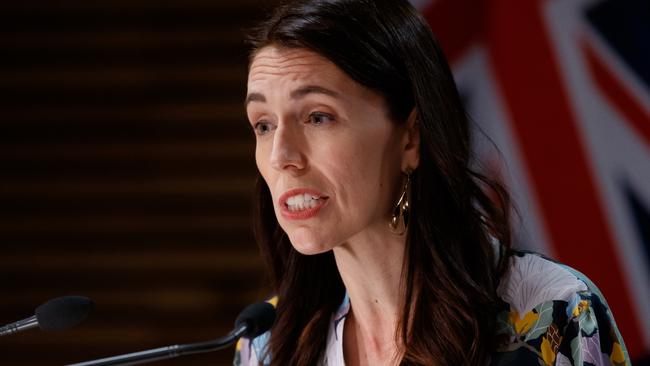
Sadly, Greens leader Adam Bandt did not react well to the news the Royal Australian Navy will reduce its CO2 emissions by replacing diesel electric submarines with nuclear powered ones. It was a case, he repeatedly maintained, of putting “floating Chernobyls in the heart of Australia’s cities”. Something or rather someone was having a meltdown, but it wasn’t the RAN.
That’s not to say defence doesn’t appear in the Greens’ policies. If you look hard enough on their website, you will see it gets a mention in parentheses alongside the ‘Peace & Disarmament’ portfolio. I was surprised it received even token acknowledgment.
‘Stab in the back’
When Greens senator Sarah Hanson-Young’s office released a statement condemning the federal government’s decision to commission nuclear submarines, she was in denial about China’s aggressive expansionism. “The real security threat we face is the climate crisis and that’s where PM [Scott] Morrison should be directing his energy,” she said.
But the biggest stink of all – one might say the Pepé Le Pew of stinks – comes from the French government. “It’s really a stab in the back,” said the French foreign minister, Jean-Yves Le Drian, last week. “We had established a relationship of trust with Australia; this trust has been betrayed,” he told France Info radio on Thursday. This was a case of “treason in the making,” said French ambassador Jean-Pierre Thebault only hours before his government recalled him for consultations. “We have been blindsided intentionally for 18 months …. The crime was prepared for 18 months.”

That the Turnbull government signed a $92bn contract for 12 French-designed Attack-class submarines is fact. But it does not follow that Australia’s cancellation of this agreement amounts to reneging on or otherwise breaching the contract. The Australian National Audit Office has confirmed the agreement provided for escape clauses and “contractual off-ramps”. What’s more, as the ABC reported in 2019, the overarching contract provided the French company Naval Group would be paid $404m in the event it “delivered a detailed submarine design and Australia then chose to go no further”. They will not go empty-handed.
Not that this will assuage French anger one bit. The real issues are the damage to French prestige, the perception – not entirely unjustified – that Morrison had played President Emmanuel Macron for a fool, and the demise of France’s Indo-Pacific strategy to safeguards its territories in that region. But as Editor-at-Large Paul Kelly observed yesterday, Morrison was in an invidious position in that he had to keep his nuclear negotiations secret and the increasingly beleaguered French project as a fallback.
France is not without its Australian supporters. “It is unusual for a former prime minister of a country to criticise the decisions of a successor prime minster in the opinion pages of a foreign newspaper,” wrote one Kevin Rudd in Le Monde this week. It is unusual unless you are an incessant and egotistical critic of successor prime ministers, you might quip in response. Morrison, he claimed “failed to adhere to basic diplomatic protocols in not officially notifying the French government of its unilateral decision prior to the public announcement of the cancellation of the contract”.
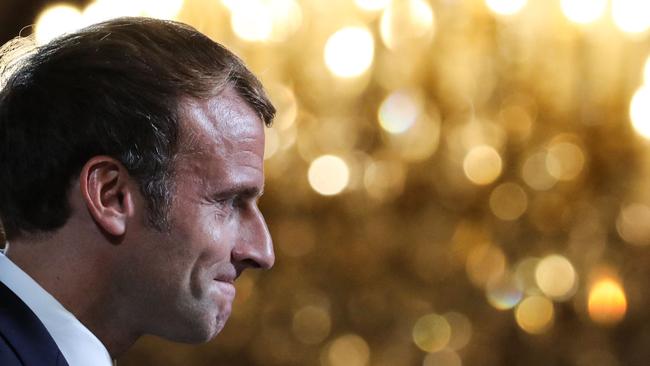
He may as well have said “My name’s Kevin, and I’m a stickler for notifying stakeholders about crucial naval developments”. You might remember during Rudd’s election campaign of 2013 when he announced on the run his plan to move the RAN’s headquarters from Sydney to Queensland. How awkward for Rudd when soon after that he happened upon then NSW premier Barry O’Farrell in view of Garden Island. “Good morning, Kevin. A phone call would have been helpful,” said a polite but peed off O’Farrell, much to Rudd’s embarrassment.
Selective memory
But for all its talk of Australia betraying a friend, France has conveniently forgotten its treatment of this country. Between 1966 and 1974, it conducted 41 atmospheric nuclear tests at Mururoa Atoll, despite the protests of Australia and New Zealand.
In 1973, when then prime minister Gough Whitlam sought an injunction against testing in the International Court of Justice, France indicated it would ignore the ruling. “If there is nothing wrong with the tests, why don’t the French save money and hold them in Corsica,” said an exasperated Whitlam when France claimed the detonations were “clean” and presented no health danger.
In 1995 French president Jacques Chirac ordered the resumption of nuclear testing, and once again, protests were ignored. The French ambassador to Australia even took leave to holiday in France at one stage during the tests. As the Canberra Times reported in December of that year, the Department of Foreign Affairs had to settle for summoning the embassy’s charge d’affairs, who “clearly was not fazed”.
But that is all in the past, right? Wrong. In March this year France supported the Italian government’s decision to stop the shipment of 250,000 AstraZeneca doses destined for Australia to ensure EU countries were given priority. As international news service France 24 reported “French health minister Olivier Véran said he ‘understood’ the Italian’s government decision and indicated France ‘could do the same’.”
The acquiring of nuclear submarines and the co-founding of AUKUS could well be the most significant defence initiative made by an Australian government this century. As for France’s angst towards Australia, one need only remind its government of former foreign minister Hervé de Charette and his response in 1995 to fellow EU nations that condemned France for resuming its nuclear tests.
“As far as the reaction of other governments is concerned, I can tell you that France will not bend when it comes to the defence of its national interests,” he declared. Monsieur, please convey to your successor that we are merely adopting your country’s example.


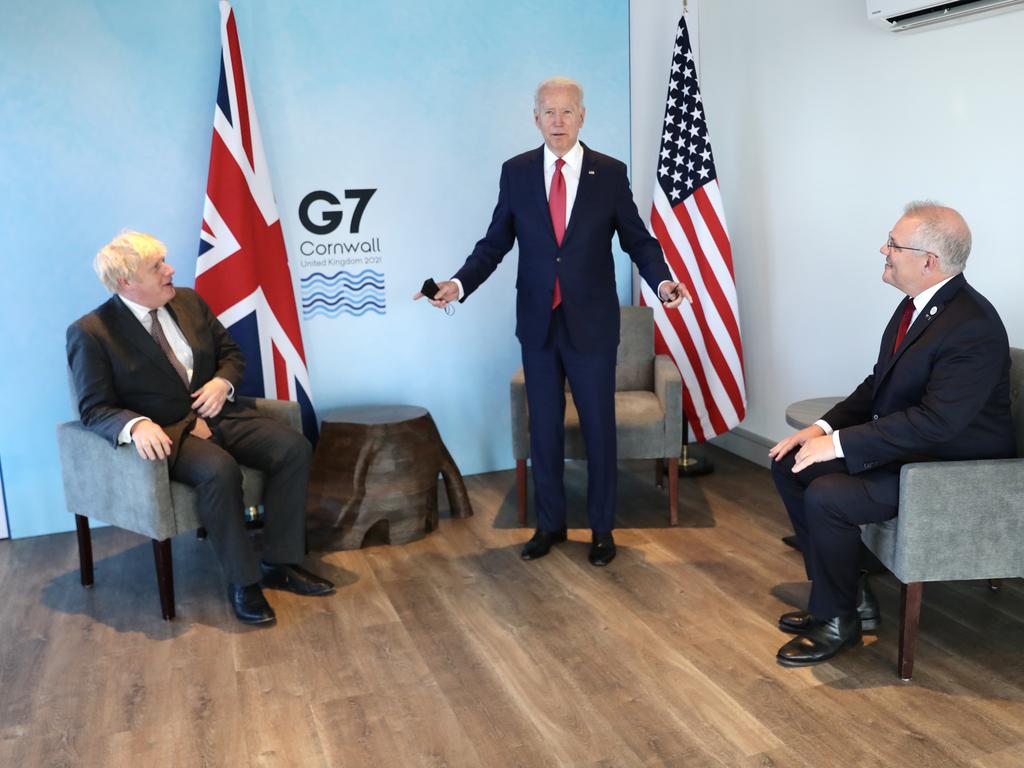
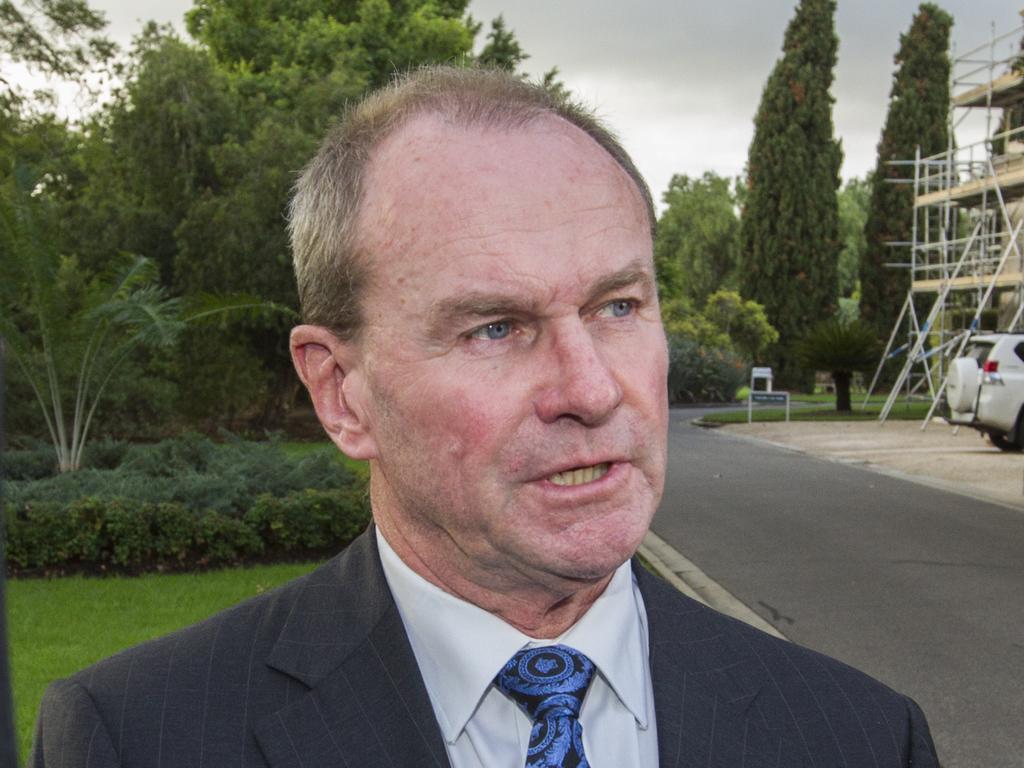
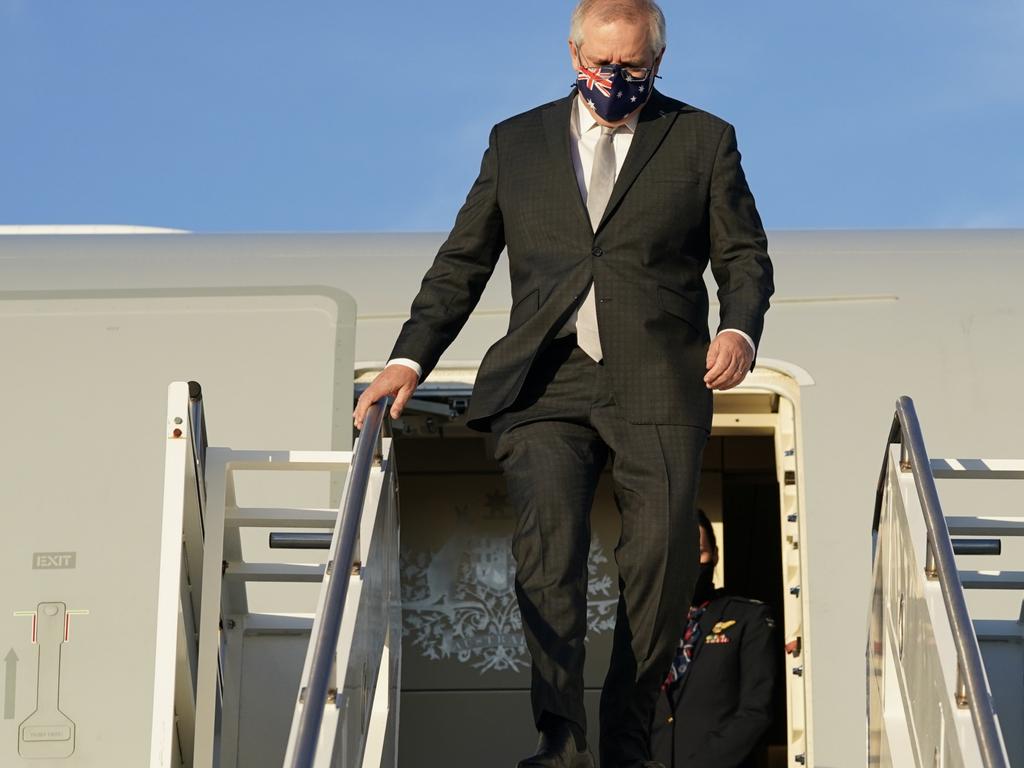
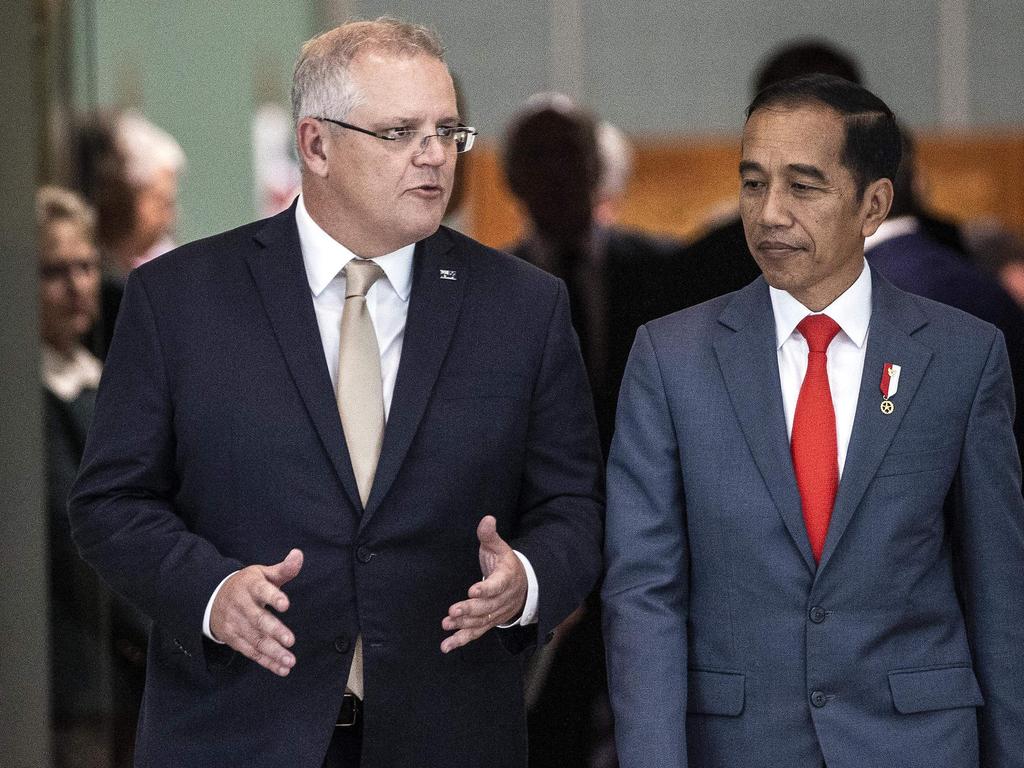


Sometimes the best examples of vindication for a major shift in defence policy are the irrational outbursts of those opposing it, and the reaction to the newly formed AUKUS tripartite pact is proof of that. To begin with, Chinese Foreign Ministry spokesman Zhao Lijian said last week Australia would “only end up hurting their own interests” if the country did not abandon the “cold war mentality”.